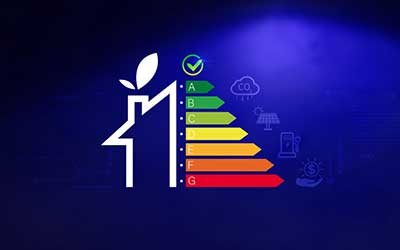Energy Conservation Unit
About the Unit
The unit was formed in March 2013 at the invitation of Prof. Dr. Mustafa Ismail, Vice Dean for Postgraduate Studies and Research Affairs, in coordination with Prof. Dr. Randa Kamel, Vice Dean for Community Service and Environmental Development, in an attempt to rationalize energy consumption within the college buildings through the following activities:
Applying the scientific research carried out by faculty members and their assistants in favor of energy rationalization
Educating students and workers on the need for rationalization and how to implement it through practical applications implemented within the college buildings and measuring their efficiency and studying the possibility of developing these applications to increase their efficiency.
Encouraging faculty members and their equivalents to conduct new theoretical and applied research to rationalize energy by cooperating with the responsible authorities and conducting joint research in the field of energy rationalization that is suitable for application at the national level.
Creating a permanent exhibition within the college for the ideas and research that have been implemented in order to market them locally and internationally by inviting businessmen and investors to visit the permanent exhibition to use the ideas and to activate cooperation with the community in this field.


Unit Members
The unit initially consisted of the following gentlemen to start the executive steps, where an agreement was reached with Mr. Prof. Dr. Mustafa Ismail, Vice Dean of the College for Postgraduate Studies and Research Affairs, where his Excellency promised to provide a suitable headquarters soon, and the activity has been practiced since March 2013 until now from the office room of Dr. Samy Ali Kamel on the fourth floor of the Architecture Department building until the appropriate headquarters is ready, and the group that took the initiative consisted of the following faculty members:
Prof. Dr. Sami Ali Muhammad Kamel, General Supervisor and Assistant Professor at the Department of Architecture
Prof. Dr. Ehab Mohamed Wafaei is an assistant professor in the Department of Civil Engineering
Dr. Ahmed Abdel Razek Amara is a member of the Department of Mechanical Power Engineering
Dr. Mohamed Ezz El-Din is a member of the Department of Civil Engineering
Unit Achievement
Four meetings were held on a monthly basis at the office of Dr. Sami Ali Kamel as the temporary headquarters of the Energy Conservation Unit, and the following ideas and proposals were discussed, some of which were implemented as follows:
1- The workers responsible for the third and fourth floor of the Amara building were sensitized to take into account the rationalization of electricity used in lighting and the operation of ceiling fans and air conditioners, as several notes were directed to turn off the lighting in classrooms and halls that are free of students or professors, with little awareness that the continuation of lighting without need will necessarily lead to electricity cuts in other places to reduce the load, Sometimes a moral incentive is also given with some workers by opening channels of communication with Dr. Samy and Dr. Ehab with little material incentives to encourage workers to turn off unnecessary lights and fans, so that this becomes a traditional behavior stemming from people with the passage of time and accustomed to it.
2- It was announced that higher material rewards will be given to the workers responsible for the floors in the building in case of rationalizing electricity, estimated by a percentage of the reduction in electricity consumption in each building, in order to motivate them to continue to turn off the lights and fans and to get used to this behavior.
1- Applied research was conducted to study the possibility of rationalizing water consumption by measuring the current water consumption through a meter installed at the water entrance and recording the consumption for three months to calculate the average monthly consumption.
2- Rationalizing water consumption inside the toilets by replacing the taps with pressure-operated ones that do not allow water to pass through them except during pressure and then the water is cut off.
3- Reducing the amounts of water used in parcel boxes by placing filled water bottles inside the parcel boxes with a capacity of one liter each, in order to reduce the amounts of water used each time.
4- Connecting the gray water resulting from the hand washing basins to the expulsion boxes to reuse it to expel solid waste in the water cycles.
5- Establishing an analysis tank to receive wastewater from the building and reuse it to irrigate the gardens after a preliminary analysis process as an alternative to using pure water to irrigate the gardens.
The energy alternatives that are suitable for Egypt as an alternative to petroleum and natural gas were discussed based on a review of the following sources: Information on the Internet and contacting some researchers such as :
1- Professor Dr. / Josine at the National Research Center reported the importance of encouraging the cultivation of the Jatropha plant to obtain biofuels due to the ability of this plant to resist conditions and weather factors and that it can be cultivated in desert lands, and wastewater can be used to irrigate this plant, as it is not eaten.
2- Professor Dr. / Mohsen Radwan, Professor in the Department of Mechanical Engineering at the College, where his Excellency reported that his Excellency has many applied researches that confirm the possibility of using such a plant to produce energy and that his Excellency has many researches through which such a plant can be relied upon as a clean and safe alternative to energy.




